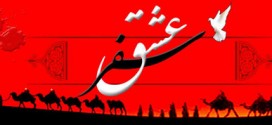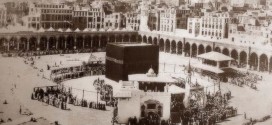RECEIVING THE FIRST LETTERS: On Ramadan 10th, 37 days after the Imam’s arrival in Mecca, the first letters were delivered. Abdullah ibn Sabi’ al-Hamdani and Abdullah ibn Wāl al-Taymi were the first group of the letter carriers. 63
NEXT DISPATCHED GROUPS AND MESSENGERS: Qays ibn Musahhir al-Saydawi, Abdurrahman, Abdullah ibn al-Kidan Irhabi and Ammara-t ibn Abd al-Sulluli arrived in Mecca on Ramadan 12th while they had 50 letters from the great of Kufa. On Ramadan 13th, Hāni Ibn Hāni al-Sabi’ee and Sa’eed ibn Abdullah al-Khath’ami (al-Hanafi) with 50 letters entered Mecca. (Some have written that the letters had been 53, 150 letters and even more.)
The writers of letters except ordinary people were great faces such as Shibth ibn Rab’ee, Hajjār ibn Abjar, Yazid ibn Hārith ibn Ruwin, Amr ibn al-Mihāh, Sulayman ibn Surad al-Khazāei, Rufā’at ibn Shaddad, Abdullah ibn Wāl, Habib ibn Madhāhir and Musayyib ibn Najabah. 64
TIME OF RECEIVING THE LAST LETTERS: The last letters were delivered by Hāni ibn Hāni al-Sabi’ee and Sa’eed ibn Abdullah al-Hanafi. Up to Ramadan 14th, the number of the letters reached 12000 and according to some other references 18000 and 40000. 65
CONTENTS OF THE LETTERS: In most of the letters, there was the same content saying “All of the people are waiting for you to come. They don’t participate in Friday prayers and prayers in congregation. O’ son of the Prophet! The gardens are ever green; the springs are boiling, and the army is ready to defend and help.” 66
REFLECTION OF THE CHANGES IN MECCA: The news of Aba Abdullah and Abdllah ibn Zubayr’s opposition and the letters of the residences of Kufa were reported to Yazid; Yazid furiously dismissed Walid ibn Atabah and replaced Amr ibn Sa’eed al-Ashdaq instead of him on the month of Ramadan. Meanwhile he wrote a letter to Abdullah ibn Abbas and considered the letters of residences of Kufa and readiness of Husain (PBUH) for the uprising a big threat and warned that the futurity of those movements wouldn’t be pleasant. In this letter, it was also mentioned to Abdllah ibn Zubayr and his refusal. In response, Abdullah ibn Abbas advised Yazid to be intellectual and hones and refrain from immorality and sins. 67
References:
63. Akhbar al-Tawwal (P. 231); History of Tabari (Vol. 5, pp. 351-353); Al-Irshad (Vol. 2, pp. 6-34)
64. Nafas al-Mahmum (Pp. 80-81); A’yan al-Shiah (Vol. 1, p. 589); Kharazmi: Maqtal Al-Husain (Vol. 1, pp. 194-195); Ibn Athir: Al-Kamil (Vol. 3, pp. 266-267); Maqatil al-Talibin (Pp. 62-63)
65. Bahr-ul-Ulum: Maqtal al-Husain (Pp. 151-152); Wasilat al-Darin (P. 32); Abi Mikhnaf: Maqtal (P. 17-19)
66. Al-Bidaya wa al-Nihaya (Vol. 8, pp. 151-152); Al-Luhuf (Pp. 33-36); Ibn Athir: Al-Kamil (Vol. 3, pp. 266-267); Kharazmi: Maqtal Al-Husain (Vol. 1, pp. 194-195)
67. Tadhkirat al-Khawas (Pp. 136-137); Al-Bidaya wa al-Nihaya (Vol. 8, p. 164); Bahr-ul-Ulum: Maqtal al-Husain (Pp. 144-145)
 website roozedahom Just another WordPress site
website roozedahom Just another WordPress site




